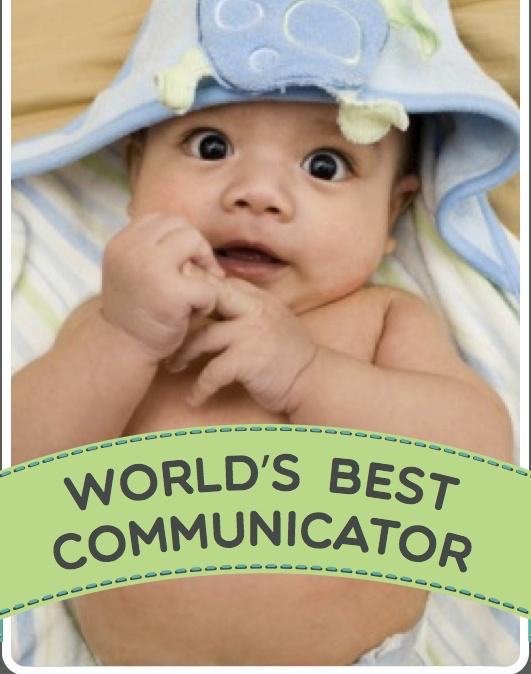In 2010, a movie called The King’s Speech made public speaking its dramatic focus.
In it, British actor Colin Firth explores the anguish that people feel when they’re cut off from their natural “voice” — meaning not just our physical voices, but our feeling that we have the right to express what we think and feel, the right to be heard.
Firth’s character (King George VI) suffered from stuttering, an extreme form of speaking inhibition.
But we’re all cut off from our voices — from the right to be heard — at some level, because that’s what the process of growing up and entering society is all about.
How All Our Voices Get Cut Off

You may have noticed that babies scream loud, long and without interruption when they want something.
They can literally do this for hours!
(My daughter, when she was a baby, occasionally demonstrated this in places like the subway or the International Arrivals area at JFK Airport.)
Because this expression of innate baby power is both embarrassing and socially unacceptable to adults, we parents quickly step in to contain the damage (by removing the screaming child), or offer “correction” in forms that range from mild to severe and can include lecturing, shaming, smacking, and even (ironically!) parental screaming.
Children Who Are Silenced Become Adults Who “Can’t” Speak”
What this inevitably creates — ten, thirty, fifty years later — is an adult who, at some level, doesn’t believe they have the right to be heard.
I know this because, day after day after day, my public speaking clients show up for coaching sessions and explain that they’re terrible speakers because there’s something “wrong” with them: Their accents. Their vocabulary. Their credentials. Those twenty extra pounds.
In fact, what’s “wrong” with them is that they’ve lost the sense of deserving to be heard that they started out their lives with.
We all have.
Be Inspired by “The King’s Speech” to Re-Claim Your Our Voice
In The Kings’s Speech, one man who was unloved, ignored and tormented in childhood is literally unable to speak as an adult, yet finds that his entire country’s fate is riding on words he can’t get out of his mouth.
Is that an extreme example of public speaking trauma?
Yes — but it’s one that most of us can identify with!
So be inspired by King George VI’s struggle.
Be moved by his hard-earned victory.
And don’t stop fighting until you’ve reclaimed your right to be heard, because the world needs to hear what you have to say!
